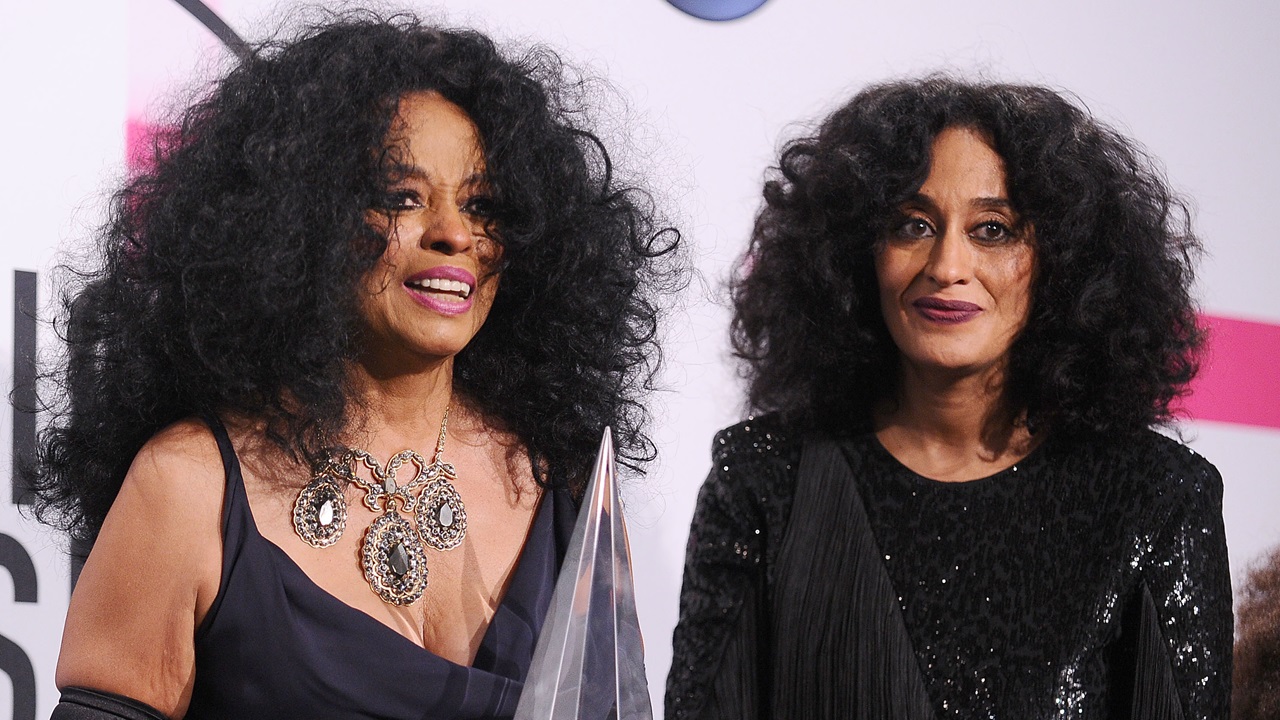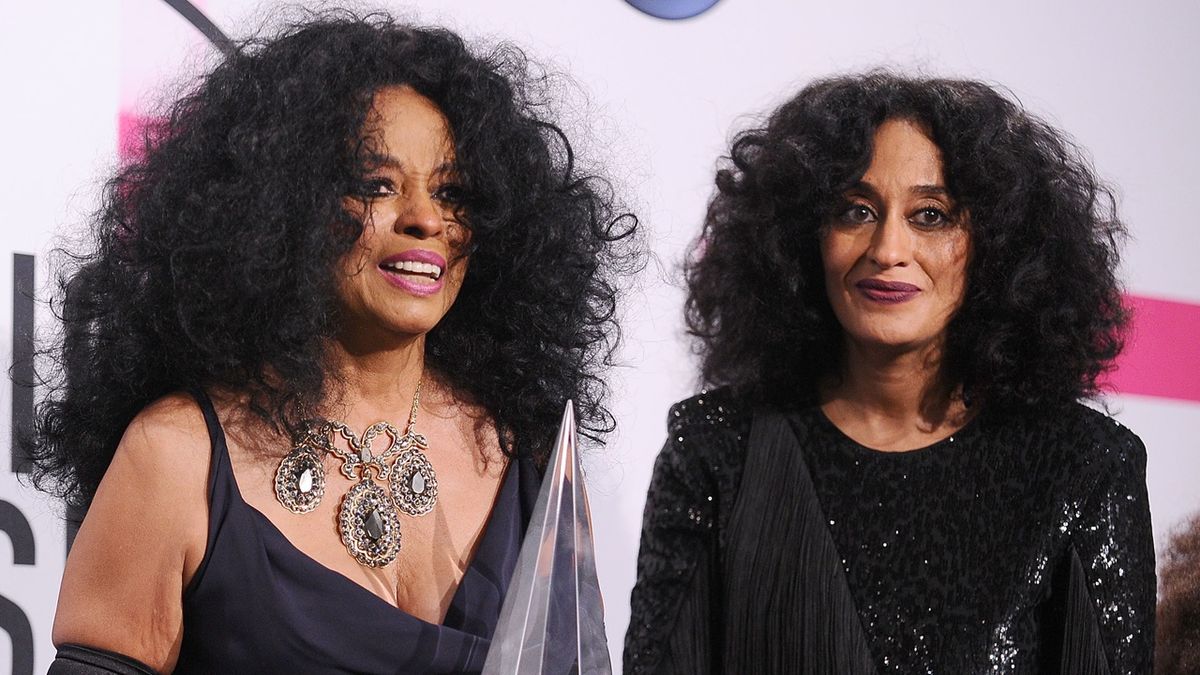
If there’s anyone you should want showbiz advice from, it’s Diana Ross, legendary star of stage and screen. And that’s especially true if Miss Ross is your own mother. Diana’s daughter Tracee Ellis Ross is, of course, a star in her own right, thanks to TV sitcoms like Black-ish and Girlfriends, as well as recent films like Candy Cane Lane opposite Eddie Murphy and American Fiction opposite Jeffrey Wright.
The latter movie centers on a novelist who is frustrated with the way the establishment profits from Black entertainment riddled with offensive and outlandish stereotypes. It was during the American Fiction promo tour that the actress revealed how her world-famous mom helped her navigate colorism and “how Blackness was being defined” both onscreen and off. During an interview with The Wrap, Ellis Ross opened up about seeking her mother’s help during a particularly challenging moment while on the set of Girlfriends:
I don’t always bring my mom career stuff, which is really interesting. Not for any reason other than I think I learned a lot just by being her daughter and witnessing—it’s such a close vantage point, how my mom navigated her career and her life. But, there are particular moments. There was a particular moment on ‘Girlfriends’ that was really challenging for me, that was particularly around how Blackness was being defined, that did not match up with what I believe is the expansiveness of Blackness, and it hurt my soul. I remember calling my mom crying. We had a long conversation about it.
Tracee continued to say how Diana didn’t just flat-out tell her daughter what to do in the moment, and instead “holds space” for her children to follow their own instincts and come to their own conclusions. The younger Ross continued:
One of the ways that my mom parents that’s so beautiful is that she sort of holds space for you. She doesn’t tell you what she thinks you should be doing or what she thinks she would do. She just kind of holds space around you.
The Emmy-nominated actress told the outlet that she eventually decided to “stay at the table, and fight for language” that was in line with her own point of view, rather than leaving the program. (She would star on Girlfriends as Joan Clayton from 2000 to 2008.). As she put it:
I remember landing on a decision for myself, which was the realization that it was more effective in this particular situation, for me to stay at the table, and fight for language and words that matched my point of view than to not be at the table at all. You’ve got to take it a thing at a time. Each thing needs to be weighed and measured and walked through, not only by what is being served to you, but also by the bandwidth that you have. Because there are times when you don’t have the capacity to do the fight and the fighting. And there are times when you have to, even if you don’t have the capacity, and then there are times when it’s OK to not fight. That sometimes is the resistance in and of itself.
Tracee Ellis Ross has previously disclosed to Metro that being compared to her iconic parent is one of her biggest fears—she formerly shut down rumors that her High Note character was based on her musical mother, despite the fact she was playing a famous singer onscreen.
However, she has followed in her mom’s footsteps with lauded work all her own, with American Fiction being one of the most critically acclaimed titles on the 2023 movie schedule and a major player in those Oscar 2024 conversations. The star told The Wrap American Fiction aligned not only with her purpose as an performer, but also as a Black woman:
When what is being asked of me [as an actress] feels like another extension of the limitations of the system, systemic racism, and I just won’t participate in that way. It’s one of the reasons ‘American Fiction’ is so beautiful to me, is because even the comedy, even the hilarity of this project comes out of the humanity, out of the truth, that the places that I laugh are the places I’m identifying [with].
Mama Ross should be very proud! American Fiction is still playing in theaters, and you can see Tracee Ellis Ross’ work on Black-ish by streaming the show with a Hulu subscription.
